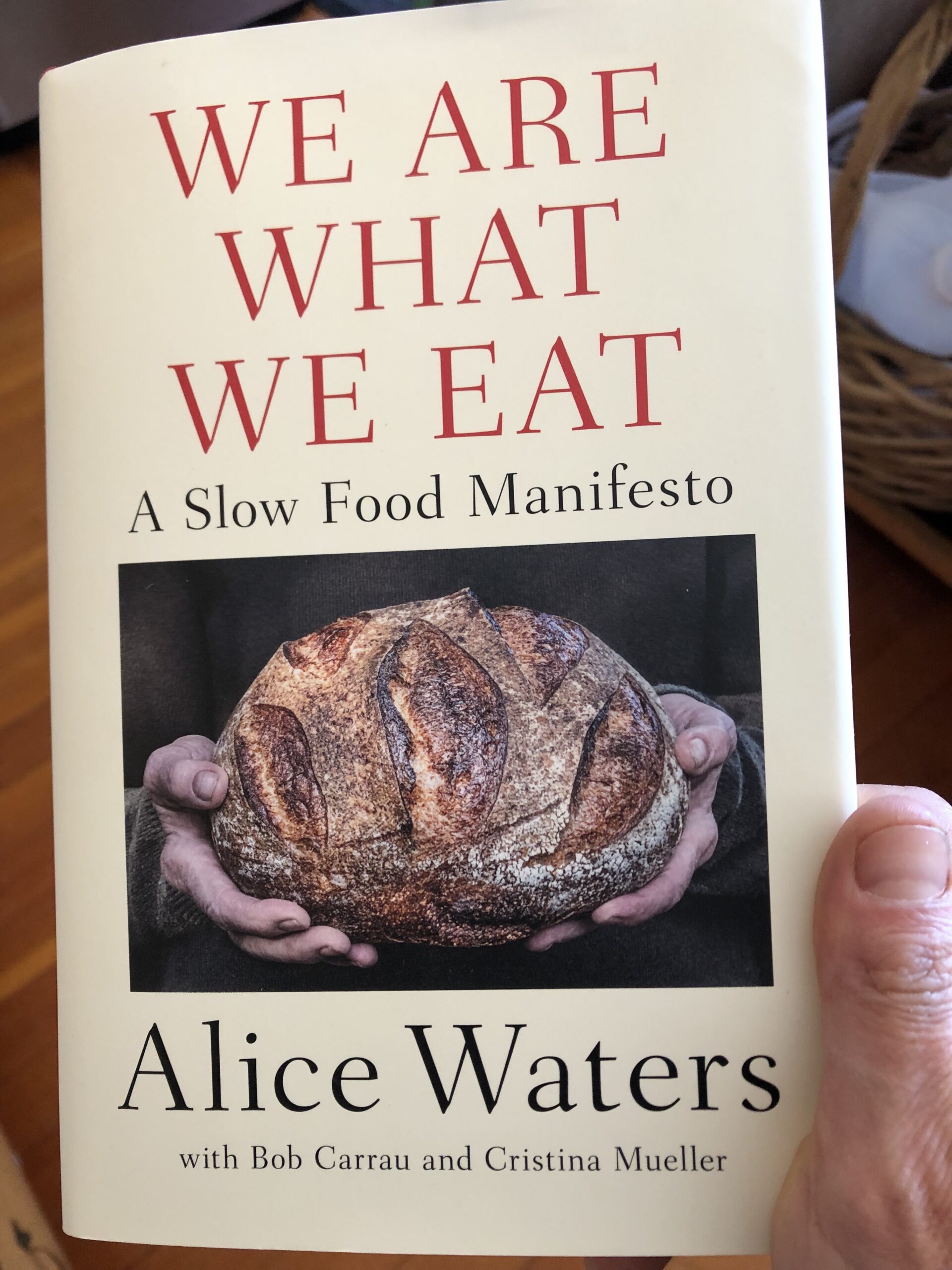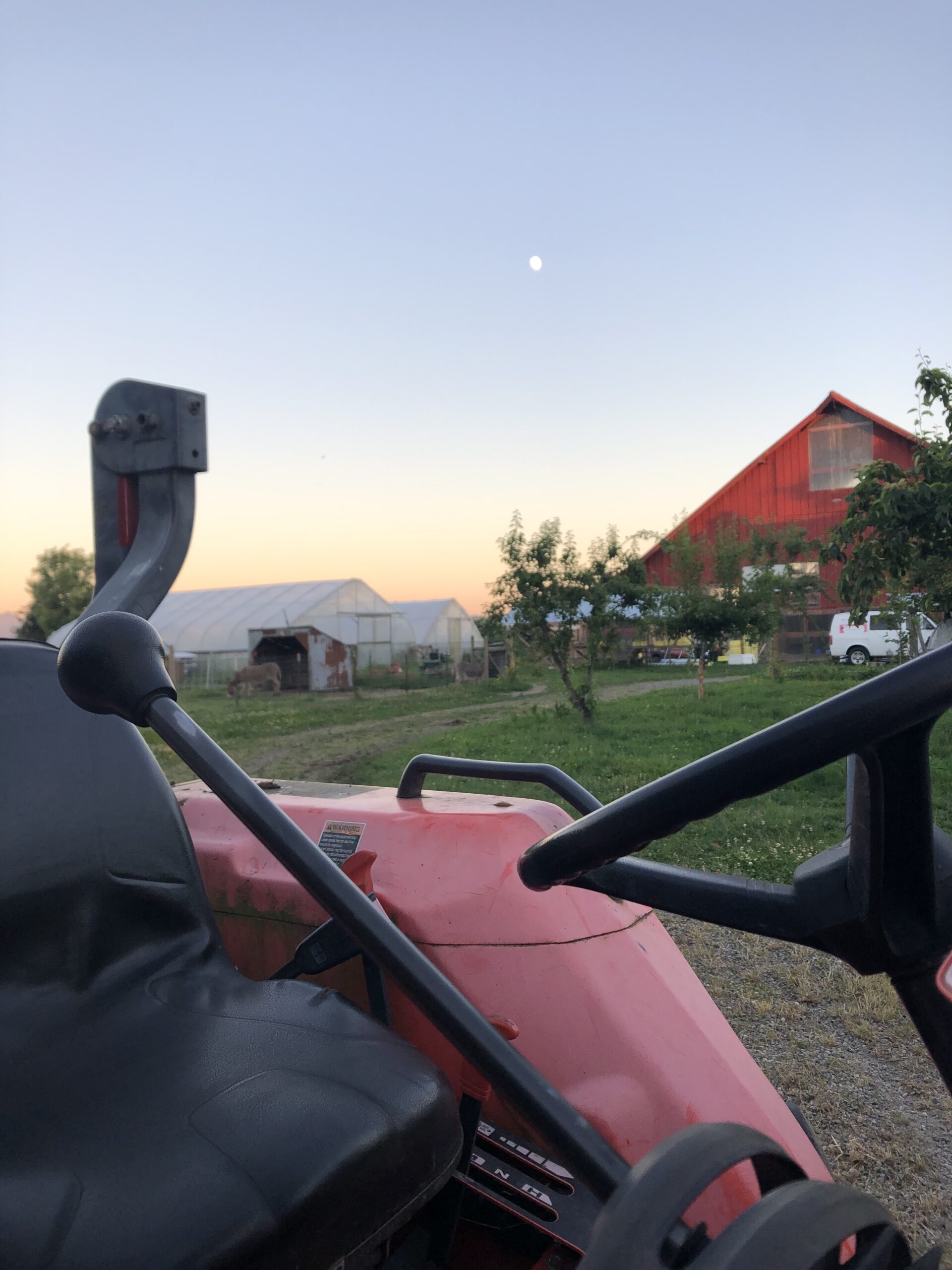We are experiencing a heatwave in the Pacific Northwest and it is warmer than I can remember..especially for late June. Our fresh cheese production is in full swing, but this heat is slowing us down a bit and adding a lot more work. The animals are doing alright and we are keeping ourselves cool, but it has been hard. Extra watering, extra fretting about all the logistics makes for a long weekend. We canceled out of our markets on Saturday and Sunday as well, because it is a real challenge keeping fresh cheese at 45 F with coolers and ice on 100 F day. Looking ahead, I fear another, intense smoke season. I fear we will be facing erratic and dangerous weather patterns for years to come.
Earlier this month was my 20-year college reunion. It was virtual and I didn’t really attend any of the online events, however it was a nice reminder of time. For me, these last twenty years have been so much about sustainable farming. I have dabbled in all aspects of food production at this point, starting as a farm intern, doing research at a land grant university, and now trying to run this farmstead creamery. As I left college, I had the epiphany that all of our environmental issues could be traced back to our relationship with food. After visiting a Dole plantation in Costa Rica and driving through the endless vegetable fields of the Salinas Valley, I was blown away by the vast scale of our food system. I wanted it to be different, smaller, more localized. I wanted to be a part of this change.

I recently read this new book by chef and activist Alice Waters. It is indeed a manifesto, organized into two sections (Fast Food Culture & Slow Food Culture). The Fast Food Culture addresses convenience, uniformity, availability, trust in advertising, cheapness, more is better, and speed. In contrast, Slow Food Culture talks about beauty, biodiversity, seasonality, stewardship, pleasure in work, simplicity, and interconnectedness. What I love about this book is that Waters is candid and unapologetic. She writes from her long experience cooking for people and helping her community grow good food. She has accomplished a lot in her career, but is also honest about that fact that a lot still needs to change. She writes, “Fast food culture has become the dominant culture in the United States, and it’s becoming the dominant culture in the world.”
Since I graduated from college and entered the “real” world, there have been numerous books and documentaries highlighting our food system conundrum. New labels and certifications have been invented to educate consumers on how their food was grown. Heck, at my college you can choose food studies as an area of study. It’s a department! I love the attention that has been put on food and Waters’ books succinctly covers what we now know. Personally, as a poet and a business owner I am still trying to figure out how to live out my ideals (sustainably) and this book was good reassurance that the work we are doing on small farms in the US is important. Changing culture takes time—many, many decades—but we are on a path to a healthy, food culture. At least, I hope we are.
For the last year, I have been exploring balance in my life and what it takes to truly rest and farm well. The pandemic-induced inertia made me realize I was working at an unsustainable pace. I take a lot of pride in working hard all the time and have had a lot to prove to myself over the last twenty years. However, this slow food culture Waters eloquently describes (and I subscribe to) also requires a celebration of slowness in all aspects of our lives, too. She writes, “Slow food values are our shared, natural legacy.” We make and sell a lot of our own food, including fresh sheep’s milk cheeses that are hard to find in the US, and we shop at Costco and sometimes buy their dirt-cheap imported cheeses. I hope that through our various social media channels I have not perpetuated the myth that this is easy and idyllic work. It’s really hard. And I am also not trying to say that we have figured out how to operate, as a household, outside of the food system as we know it today. It is a contradiction that I struggle with all of the time.
Speaking of contradictions, for many years I have been holding restaurant fame as a goal of our farm. Recently, an article in the NYT about the underbelly of a local destination restaurant really shook me. We were thrilled to have our product on their menu over the years and we knew people that worked there. However, I had no idea how horrible the situation really was and it has made me question the value of the entire farm-to-table movement. In many cases, I think restaurants work on similar (tight) margins as farms—the pandemic made that clear. Some corners need to be cut and the experience of the diner is often shadowed by false claims and even falser ingredients as was the case at the restaurant mentioned above. Perhaps, moving forward, the use of local products on menus can just be the norm instead of using it as marketing tool? You buy from the farmers around you and if you do have to import something maybe note that on the menu. Imported snails! Regional wines from France! Coconut milk!
In a recent interview, Dan Barber, said “Small, independent farms are very important, although they were still only feeding a small percentage of the population. They’re the lighthouse, the beacon, for how a food system should work, always small, always independent, always diverse.” He is speaking of the ideal here and as a country we need to be talking about how to keep this ideal alive in the face of great global consolidation and environmental change. Chefs as advocates for changing the food system are needed, but the real shift will happen when the everyday consumer turns towards slow food 100% of the time. Addressing our own conveniences and choice and pace of life will slow down both how we live and what we eat.
Waters writes, “Finding the beauty in food can change your life.” I, wholeheartedly, agree! I have dedicated my whole young adult life to this work. Now, as I get older, I am trying to figure what the next twenty years will hold. My wish is that they are slower, yet more full. Simpler and overflowing with abundance.
Signing off for now, with more questions than answers, from our little (yet productive) piece of land.


